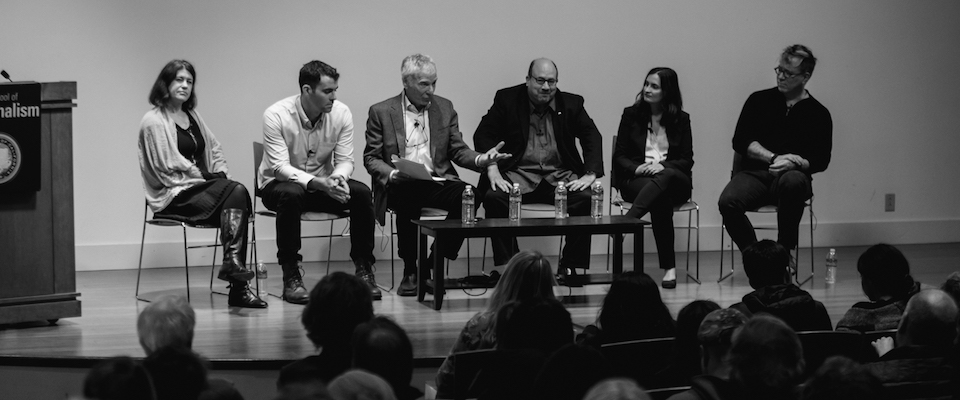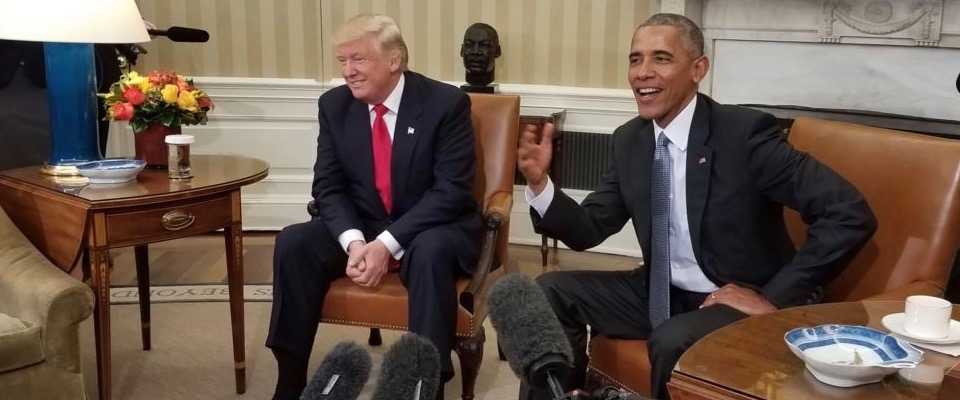Those gathered at UC Berkeley on a recent Thursday night for a panel on fake news were primarily concerned with debating the scope and responsibility of Silicon Valley’s tech giants for disseminating false information leading up to the presidential election. No one on the panel could have predicted the unprecedented shift the conversation would take around the issue of fake news just a few days later.
Before the inauguration, the fake news label was used to describe fabricated Facebook stories generated, for the most part, to cast Hillary Clinton in an unfavorable light.
By the inauguration, the term had been commandeered by the Trump administration and attached to actual, albeit unsubstantiated, reports about the then President Elect’s relationship with Russia. And since the inauguration, the administration has upped the fake news ante with accusations of inaccurate reporting on the inauguration’s crowd size and Trump’s recent tweets labeling all New York Times and Washington Post coverage of him “false,” “angry” and “dishonest.”
“The term ‘fake news’ is in very serious danger of losing all meaning and just becoming a catch-all, a pejorative, for news that you don’t like or you disagree with or that you mistrust,” UC Berkeley Graduate School of Journalism Dean Edward Wasserman, who was on the recent panel “Separating Fact from Fantasy: Is Fake News Undermining the Truth” says.
Indeed, what began as a label for online articles deliberately and manipulatively fabricating information for financial and political gain has now fallen into an abyss of abuse and misuse, as the faux news tag is being brandished to delegitimize established media outlets for accurate, fact-based reporting perceived as critical.
Presidential disputes with the media have occurred in the nation’s past, Wasserman notes. But this manner of criticism, of decrying the fundamental veracity of factual reporting, is new territory, he says.
“The fact that government officials are lying—that isn’t fake news, that’s lying”
The “fake news” label requires precision in its usage, and not only from the White House, but also from the media. Coupled with its accusations against the press, the Trump administration has itself peddled false narratives—information that is factually incorrect, but that ought not to fall under the umbrella of the “fake news” name.
“The fact that government officials are lying—that isn’t fake news, that’s lying,” says Jeffrey MacKie-Mason, UC Berkeley’s university librarian and a professor at the School of Information. “Just because everybody was talking about fake news and that’s sort of a trendy, hot item at the moment doesn’t mean that all lies on the planet should be called fake news.”
What to call these utterances—such as Trump’s repeated assertion that millions of undocumented immigrants voted illegally—instead is still up for debate. But use of an expression already so corrupted becomes a semantic diversion from the larger, graver concerns of the Trump administration’s dubious commitment to truth, MacKie-Mason says.
The dilution of the “fake news” term—as well as the use of terms such as senior advisor Kellyanne Conway’s already infamous “alternative facts“—will ultimately cause public confusion that will likely lead to resignation, both Wasserman and MacKie-Mason agree. And then there are the outright lies that can, with little work, be unequivocally disproven but that create an elaborate smokescreen that the public can’t see behind.
“If you pull the camera back a little bit, there’s a larger fear that you’re going to be producing an electorate that fundamentally doesn’t know what’s going on, doesn’t know who to believe,” Wasserman says. “That could in theory create a tremendous room for maneuvering on the government’s part since they could pretty much do what they want, explain it a way using whatever far-fetched or fallacious justification they come up with, and nobody’s going to be able to stop them.”
Double-speak and evasion and manipulation of facts have long existed across the political spectrum, but never to the degree that a fact is no longer a fact., MacKie-Mason says.
“The real sea change here is the adoption of blatant, repeated lying as a political strategy from the top of government because they’re teaching our nation not to care about the truth—an anti-truth policy,” MacKie-Mason says. “That’s really bad for democracy or really bad for an educated, advanced civilization—to think that there is no truth and we can make up whatever truth we want. That’s really scary.”
While much was said of Trump’s ascendance via post-truth politics and appeals to emotion, the glimpse of his presidency thus far indicate he will govern and enact policies in the same vein.
“The fear is that the administration will tell itself what it wants to hear rather than tell itself what it needs to know,” Wasserman says. “And that decisions will be made based upon free-formed convictions…and he will not be willing to listen to factual, discordant input that should cause him to change policies.”
And the effects may be with us for more than the next four years. For political leaders to reject truth is to invite a cultural shift. This means generational impact, MacKie-Mason fears. And more than ever, the burden will fall to educators to teach critical thinking.
For Wasserman, the need for responsible news media in combating falsehoods and lies is more crucial than ever, even in the face “false news” accusations. But the substance and style of Trump’s communication are forcing some rule changes. Does every one of his tweets deserve coverage? Do journalists give voice to each claim he makes, regardless of its truthfulness?
“There’s a whole different set of criteria that needs to be vocalized in order to decide when [Trump] is worth covering and when to stop playing into his hands by making him the central figure in a government that he doesn’t seem to be running,” Wasserman says.
“I would say we need to revise this adoration of the head of state that has grown up over the last 30 or 40 years. We finally now have a head of state that isn’t really a head of anything except in as much as he’s covered.”





















